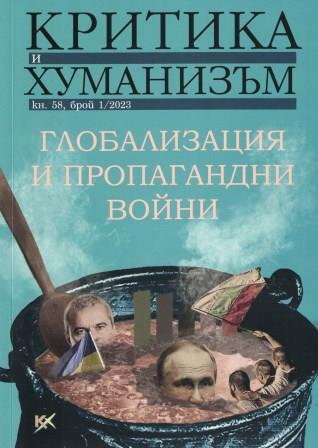Революцията и интернет като хранителна среда за робите
The Revolution and the Internet as slave nurture
Author(s): Deyan KyuranovSubject(s): Politics / Political Sciences, Social Sciences, Political Sciences, Military policy, History and theory of political science, Culture and social structure , Sociology of Culture, Globalization
Published by: Фондация за хуманитарни и социални изследвания - София
Keywords: Alexander Blok; Geo Milev; revolution; slaves; Internet
Summary/Abstract: Two poets, the Russian Alexander Blok and the Bulgarian Geo Milev are considered as representative for pre-WWI East-European leftwing intelligentsia in their attitude towards the Revolution. Both wrote emblematic poems based on real revolutionary upheavals, the Russian revolution of 1917 and the Bulgarian uprising of 1923; both saw them as uprisings of the “havenots”, who both named “slaves”. Both had seen war as participants in WWI and had been abhorred by the mass ferocity; but neither was ready to renounce their pre-war leftism. That’s why they celebrated the post-war revolutionary uprisings in their countries. However, after experiencing the reality of the post-revolutionary regime in Russia, Blok renounced the revolution of the slaves; Milev has no such experience and continued to praise the Revolution.A parallel is drawn between those “revolutionary slaves”, the “passive slaves” of today’s Internet, and the Russian soldiers, who passively follow orders to kill in Ukraine, simultaneously displaying the “agelsss spite of the slave” (Milev) while spontaneously raping, plundering and destroying in that country without referral to a moral code, as if it’s a computer game.
Journal: Критика и хуманизъм
- Issue Year: 1/2023
- Issue No: 58
- Page Range: 41-52
- Page Count: 12
- Language: Bulgarian
- Content File-PDF

